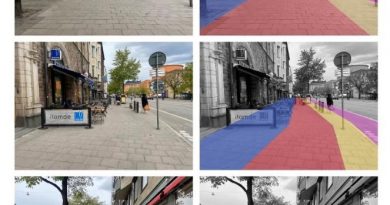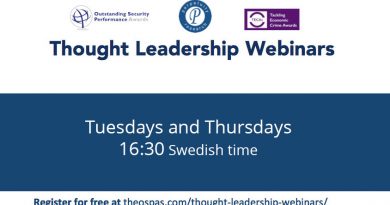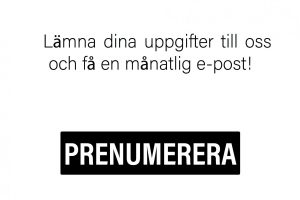Rethinking the role of women in security: where do we go from here? -Webinar 14 April, 16:30 Swedish time

Chair: Martin Gill
Panellists:
Elizabeth Moslander (US)
Maria Septien (Mexico)
Lynn de Vries (Netherlands)
Charlotte Howell (UK)
Key insights from the Webinar
Maria Septien highlighted a theme that runs through the webinar, women are under-represented in security, including at the influential higher decision-making levels, and as a consequence, they are paid less, yet, the crisis offers an opportunity for women. Lynn de Vries notes that the commitment to diversity appears less in the security sector. Pointing to Professor Felson’s observation on the previous webinar that crime theories are not working, she highlights the relevance to women in security where there is a need to think differently.
Elizabeth Moslander noted that there is a tendency in a crisis to turn to men. Yet organizations are being forced to think outside the box. For example, those that did not embrace working from home, often are now. Setting this in a broader context, Charlotte Howell highlighted findings from a research project that she had led which included responses from 706 women security professionals around the world. Amongst the key findings, she highlighted were that while women were generally positive about their security work, two thirds though felt they had to work harder than male colleagues for recognition; and two-fifths stated they were less likely to be promoted.
Some of the benefits women offer were discussed, including working harder (where they believe they add value); being good at building relationships; highlighting soft skills which are frequently underestimated; having an ability to multitask; being involved in different networks thereby extending the reach of security.
But how do women prove success? The answers discussed included ways of keeping relevant to organizations’ success; taking proactive steps to leverage their abilities; recognizing there are unique challenges requiring unique or at least different approaches in which have skills sets too and maybe ones they are especially good at; perhaps by developing specialisms; setting targets (within organizations and across the sector) and treating them seriously; adapting tools like the balanced scorecard to focus on equality issues’ and more besides.
There has been little effort to engage women early, this is true of men too, but especially women and there is a debate about how responses need not be gender-based. On the webinar, there are discussions of the merits of all-women shortlists; the value in being part of associations’ core business; the importance of gaining the support of leadership, especially perhaps women leaders which can be held up as case studies; finding good mentors; making more use of the flexibility that technologies offer, and thinking about the best uses of social media. As Maria Septien notes there is a need for women to do the right things well and attract attention that way. There is a need to harness the energy to change.





